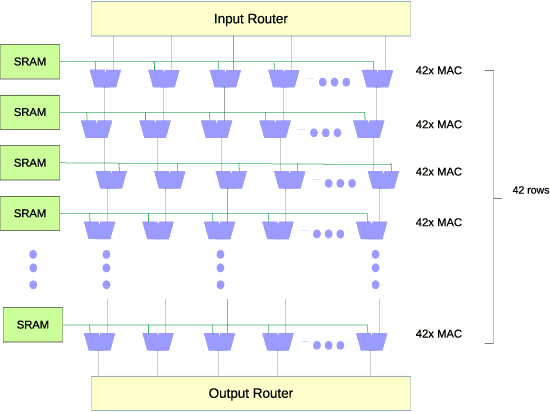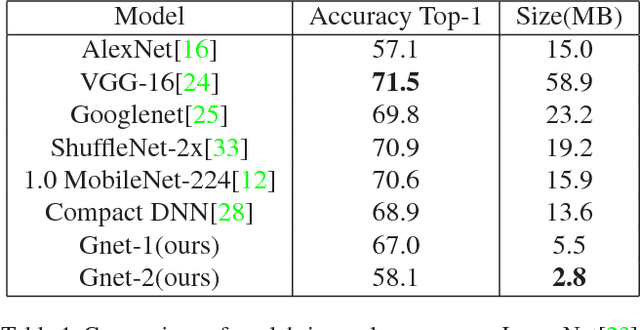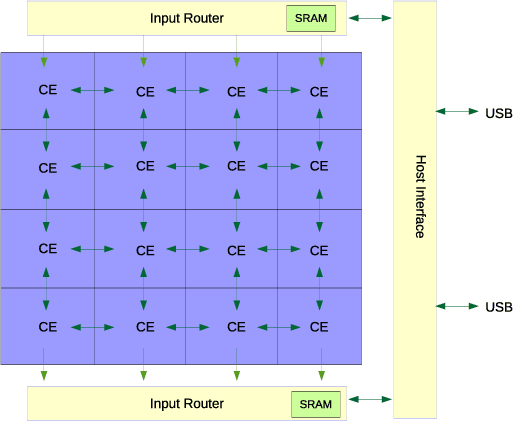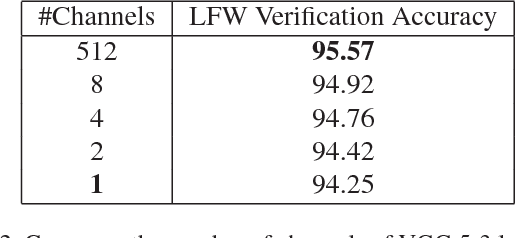Ultra Power-Efficient CNN Domain Specific Accelerator with 9.3TOPS/Watt for Mobile and Embedded Applications
Paper and Code
Apr 30, 2018



Computer vision performances have been significantly improved in recent years by Convolutional Neural Networks(CNN). Currently, applications using CNN algorithms are deployed mainly on general purpose hardwares, such as CPUs, GPUs or FPGAs. However, power consumption, speed, accuracy, memory footprint, and die size should all be taken into consideration for mobile and embedded applications. Domain Specific Architecture (DSA) for CNN is the efficient and practical solution for CNN deployment and implementation. We designed and produced a 28nm Two-Dimensional CNN-DSA accelerator with an ultra power-efficient performance of 9.3TOPS/Watt and with all processing done in the internal memory instead of outside DRAM. It classifies 224x224 RGB image inputs at more than 140fps with peak power consumption at less than 300mW and an accuracy comparable to the VGG benchmark. The CNN-DSA accelerator is reconfigurable to support CNN model coefficients of various layer sizes and layer types, including convolution, depth-wise convolution, short-cut connections, max pooling, and ReLU. Furthermore, in order to better support real-world deployment for various application scenarios, especially with low-end mobile and embedded platforms and MCUs (Microcontroller Units), we also designed algorithms to fully utilize the CNN-DSA accelerator efficiently by reducing the dependency on external accelerator computation resources, including implementation of Fully-Connected (FC) layers within the accelerator and compression of extracted features from the CNN-DSA accelerator. Live demos with our CNN-DSA accelerator on mobile and embedded systems show its capabilities to be widely and practically applied in the real world.
 Add to Chrome
Add to Chrome Add to Firefox
Add to Firefox Add to Edge
Add to Edge